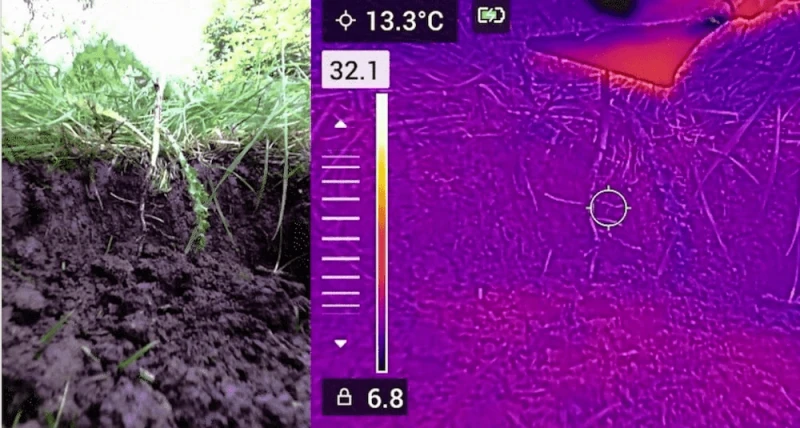Electrocuting weeds: Environmental and health concerns over herbicide use sparks quest for new solutions
Electrocuting weeds: Environmental and health concerns over herbicide use sparks quest for new solutions


As concerns over chemical usage and weed resistance increase, different technologies have been offered as alternatives to weed control. Recently, two U.K.-based companies have teamed up to produce a system that uses electricity to kill weeds.
“The principle of electric weeding has been around since the late 1800s,” says Jonathan Henry, managing director at Garford Farm Machinery. “So as an operating principle, it’s not a new one.
“The way it works is by passing current through the plant. It heats the fluid in the plant cells, vaporizes them and that damages the plant cells. Basically, after that happens the plant dries out, desiccates and dies.”
Garford, which has been building row-crop tillage equipment, has partnered with RootWave, which developed the electrical technology. Together, they’re introducing the “eWeeding” technology to the market, starting in the U.K., with plans to expand it to North America. It will eventually be marketed here through Garford’s existing dealer network.
“One of the questions that often comes up from customers, does it have a negative impact on the biology of the soil?” he says. “Rootwave and others have done quite a bit of work in that space and none of those studies have detected any negative impact on the other soil biology, micro fauna, nematodes, fungi, bacteria, et cetera.
“There are multiple paths for the electricity to return; it’s such a large mass, therefore there is no significant heating in the soil structure. So it does what you want. It kills the weed and doesn’t hurt anything else.”
This is an excerpt. Read the original post here

 | Videos | More... |

Video: Nuclear energy will destroy us? Global warming is an existential threat? Chemicals are massacring bees? Donate to the Green Industrial Complex!
 | Bees & Pollinators | More... |

GLP podcast: Science journalism is a mess. Here’s how to fix it

Mosquito massacre: Can we safely tackle malaria with a CRISPR gene drive?

Are we facing an ‘Insect Apocalypse’ caused by ‘intensive, industrial’ farming and agricultural chemicals? The media say yes; Science says ‘no’
 | Infographics | More... |

Infographic: Global regulatory and health research agencies on whether glyphosate causes cancer
 | GMO FAQs | More... |

Why is there controversy over GMO foods but not GMO drugs?

How are GMOs labeled around the world?

How does genetic engineering differ from conventional breeding?
 | GLP Profiles | More... |

Alex Jones: Right-wing conspiracy theorist stokes fear of GMOs, pesticides to sell ‘health supplements’




 Viewpoint — Fact checking MAHA mythmakers: How wellness influencers and RFK, Jr. undermine American science and health
Viewpoint — Fact checking MAHA mythmakers: How wellness influencers and RFK, Jr. undermine American science and health Viewpoint: Video — Big Solar is gobbling up productive agricultural land and hurting farmers yet providing little energy or sustainabilty gains
Viewpoint: Video — Big Solar is gobbling up productive agricultural land and hurting farmers yet providing little energy or sustainabilty gains Fighting deforestation with CO2: Biotechnology breakthrough creates sustainable palm oil alternative for cosmetics
Fighting deforestation with CO2: Biotechnology breakthrough creates sustainable palm oil alternative for cosmetics Trust issues: What happens when therapists use ChatGPT?
Trust issues: What happens when therapists use ChatGPT? 30-year-old tomato line shows genetic resistance to devastating virus
30-year-old tomato line shows genetic resistance to devastating virus California, Washington, Oregon forge immunization alliance to safeguard vaccine access against federal undermining
California, Washington, Oregon forge immunization alliance to safeguard vaccine access against federal undermining The free-range chicken dilemma: Better for birds, but with substantial costs
The free-range chicken dilemma: Better for birds, but with substantial costs ‘You have to treat the brain first’: Rethinking chronic pain with Sanjay Gupta
‘You have to treat the brain first’: Rethinking chronic pain with Sanjay Gupta
